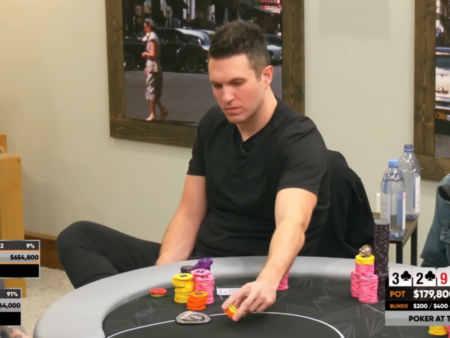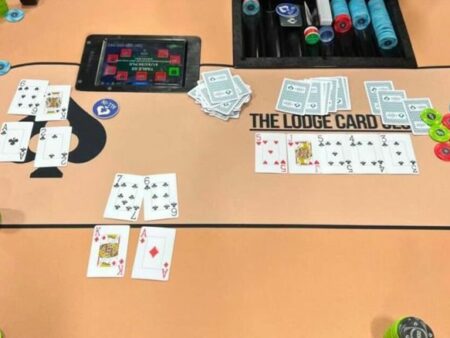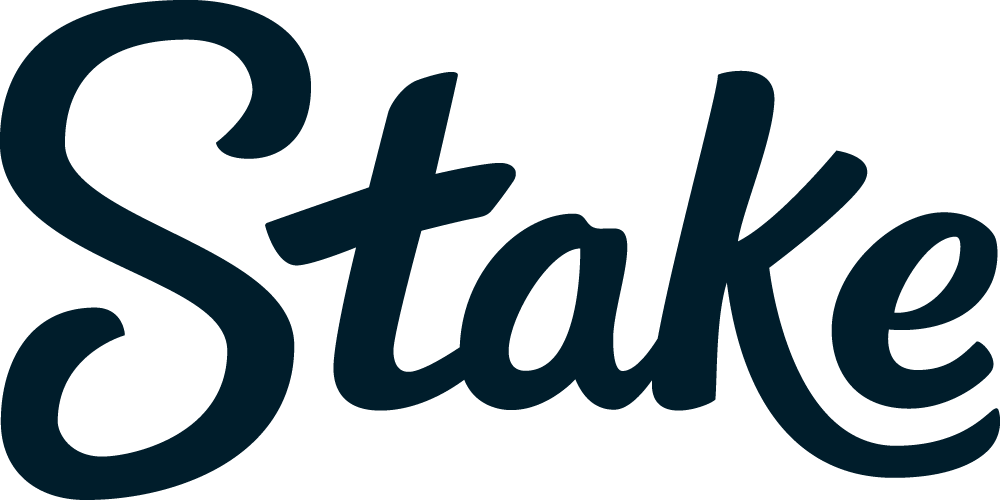Poker is a game that’s always walked the knife-edge between skill, luck, and trust. Skill sharpens with experience; luck, well, that’s fickle and intangible. But trust is the invisible glue that keeps the game honest and fair. Or at least, it’s supposed to. What if that trust could be hacked? What if the very technology casinos use to ensure fairness actually lays the groundwork for cheating on an unprecedented scale?
That’s exactly the question raised by a stunning experiment conducted recently in Las Vegas, where a team of experts hacked a popular casino card shuffling machine, the Deckmate 2, to rig a poker game from start to finish. This isn’t some cloak-and-dagger rumor; it’s a real-world breach of one of poker’s most trusted pieces of hardware, raising critical questions for players, casinos, and regulators alike.
The explosive story of hacking a casino card shuffling machine was brought to light by WIRED’s senior writer Andy Greenberg, who led an immersive, high-stakes investigation for their Hacklab series. Teaming up with casino cheating expert Sal Piacente and security researcher Joseph Tartaro, Greenberg exposed critical vulnerabilities in the widely used Deckmate 2 shuffler – an innovation that casinos trust to guarantee fairness in poker games worldwide. Bringing together deep technical know-how and first-hand testing in a real poker game setting, their work not only revealed how a shuffler can be exploited to rig hands but also underscored the growing risks in a world where traditional games increasingly rely on digital technology.
Robbi’s Hand That Made Hackers Wonder
In recent years, one of the biggest scandals in the poker world unfolded on the Hustler Casino Live stream, during the now infamous hand between Robbi Jade Lew and Garrett Adelstein. That hand, where Lew inexplicably hero called with jack-high, stunned the viewers and sent the poker community ablaze with speculation about potential cheating.
- Read more: Has Robbi Cheated Garrett Adelstein at Hustler Casino Live?
- Read more: Hustler’s Investigation Finds No Evidence of Robbi Jade Lew Cheating
The same hand appears in Andy Greenberg’s video, and security researcher Joseph Tartaro even hints that it was the moment that first sent him down the rabbit hole of exploring how casino technology could be compromised. When Hustler Casino’s investigation concluded with a firm statement that “the Deckmate shuffling machine is secure and cannot be compromised,” Tartaro wasn’t convinced.
They specifically said it could not be compromised and in my world, when people start saying that things are unhackable, or very difficult to do … Well, to us it’s a bait to prove them wrong.
And prove them wrong he did, together with colleagues Ethan Shackelford and Enrique Nissim.
The Deckmate 2: From Trusted Shuffler to Poker’s Achilles’ Heel
Deckmate 2 shufflers are everywhere in major poker rooms, even at the World Series of Poker. They sit nestled under the table, quietly randomizing cards to speed up the game and, crucially, remove the human dealer’s involvement in shuffling—traditionally one of the most vulnerable points for cheating.
Mechanically, the shuffler doesn’t riffle shuffle like your home game might; instead, it uses a series of shelves and complex algorithms to generate a random order. Sounds secure, right? Here’s the catch: the machine can also sort a deck perfectly from Ace to King, showing it can place every card exactly where it wants. That feature, designed for diagnostics, becomes a glaring vulnerability in the hands of hackers.
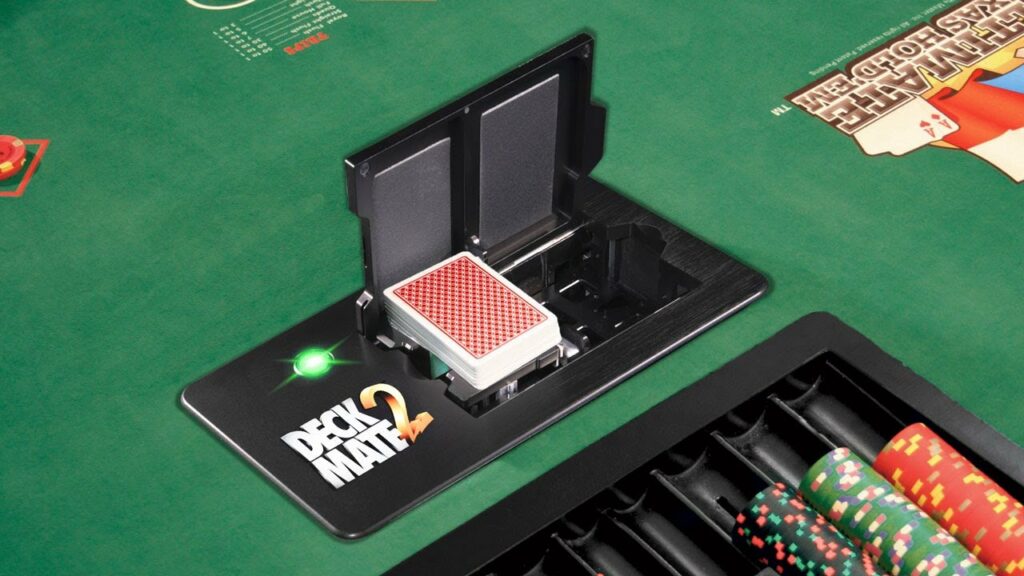
The Hack: Reordering the Deck with Code Alone
The linchpin of the hack is reprogramming the Deckmate 2 to manipulate the shuffle. By altering the shuffler’s firmware, the hackers designed an arrangement where one player’s hand always wins, regardless of where the dealer cuts the deck. This was no minor tweak; it was a mathematically solved sequence ensuring a specific seat at the table would claim victory.
But physical safeguards like cutting the deck might seem like an obstacle. To some degree, yes. But the hackers evolved their approach. They built an app that, once a player’s hole cards are known, calculates the cut’s position, allowing them to predict the entire order each player will receive. All it takes is entering two cards into the app, and the system unfolds the deck’s future.
Surveillance Inside the Shuffler: The Camera That Became a Cheat’s Best Friend
Here’s where it gets truly high-tech: the Deckmate 2 has an internal camera intended for security, to detect card tampering. The hackers turned this feature into their advantage, tapping into the camera feed to determine card order after each shuffle. This data is then transmitted wirelessly, via Bluetooth, to a cheating partner’s phone.
Imagine knowing every card dealt before the flop even hits the table. How could you not win? The real genius lies in stealth, with one player folding early to avoid suspicion while signaling the other when to bet aggressively or fold. Signals were sent covertly using simple chip counts in their hands: one chip to fold, two to call, a full stack to raise.
The Human Factor: Communication, Mistakes, and Poker Nerves
Even with cutting-edge tech, no cheat is foolproof. The experiment showed moments of communication errors, misread signals, and the psychological pressure of gambling while cheating. The hacker’s partner, despite knowing the entire deck, still had to follow orders blindly and trust signals only to sometimes folding winning hands by mistake.
This introduces a fascinating insight into poker cheating: technology can give enormous edges, but human error never goes away. Plus, the social dynamics and nervous energy at a real table add complexity to any scheme.
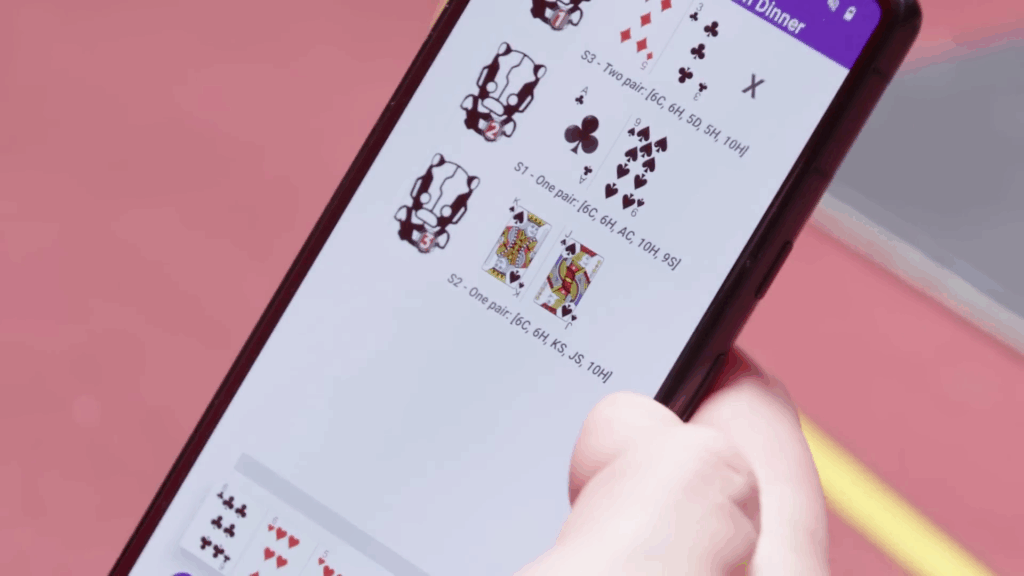
Casino Response and the Ongoing Arms Race
The manufacturers responded, saying firmware patches have been issued to fix these vulnerabilities. But with no over-the-air update system in these devices, patches rely on manual technician visits, which is a process slow and inconsistent at best. The risk remains that a compromised shuffler on the secondary market or in a private game could be exploited indefinitely.
And let’s be clear: illegal private cardrooms and unlicensed games are a hotbed for such exploits. Without the strict oversight present in established casinos, anything goes, and tech vulnerabilities become an open invitation to cheaters.
Greenberg also spoke with Doug Polk, a professional poker player and owner of two card rooms in Texas. Polk explained that players don’t need to worry about shufflers in regulated environments like casinos, where maintenance contracts ensure the machines are properly serviced. The real danger, he warned, lies in private games, where even some home games have adopted the Deckmate 2.
If you show up at a private game that has a shuffler, I say you should run for the hills.
Lessons for Poker Players and Industry Stakeholders
For players, the dominant takeaway is vigilance. If you sit at a table using an electronic shuffler, especially in informal or unregulated venues, trust your instincts. Unexplained patterns of suspicious wins, strange devices under the table, or players excessively fiddling with chips or phones might not be coincidences.
For casinos and regulators, this episode is a wake-up call to seriously reconsider the security protocols around gaming technology. Hardware vulnerabilities, insider threats (maintenance staff with access), and outdated patch management processes leave gaps that can be—and have been—exploited.
The Future: Analog Approaches and The Digital Security Revolution
This story isn’t just about a poker cheat; it’s emblematic of the digital trust crisis across industries. As our homes, cars, medical devices and yes, even casino shufflers become ‘smart’ with digital brains, it exposes everything to hacking risks. Who else is watching, manipulating, spying from behind the code?
Interestingly, the old school analog modes of cheating, false shuffles, sleight of hand, marking cards, and signaling, still linger as the backbone of casino scams, pushing the industry to accept electronic shufflers in the first place. But even these mechanical miracles of randomness can’t escape the long reach of technology-driven fraud.
Closing Thoughts: Poker’s Integrity, a Balancing Act
The allure of poker is its blend of skill, psychology, and chance, tested by the human spirit. When technology steps in to tip the scale secretly, it threatens the essence of the game. The experiment in Vegas, executed by the WIRED team alongside hacking and casino security pros, revealed not just a way to cheat but a mirror reflecting the larger challenge of securing fairness in a connected world.
Players, casinos, and regulators alike must stay vigilant, adapt fast, and foster transparency. Because in the end, the true game is not just about odds at the table, but trust in the system that sustains those odds.








